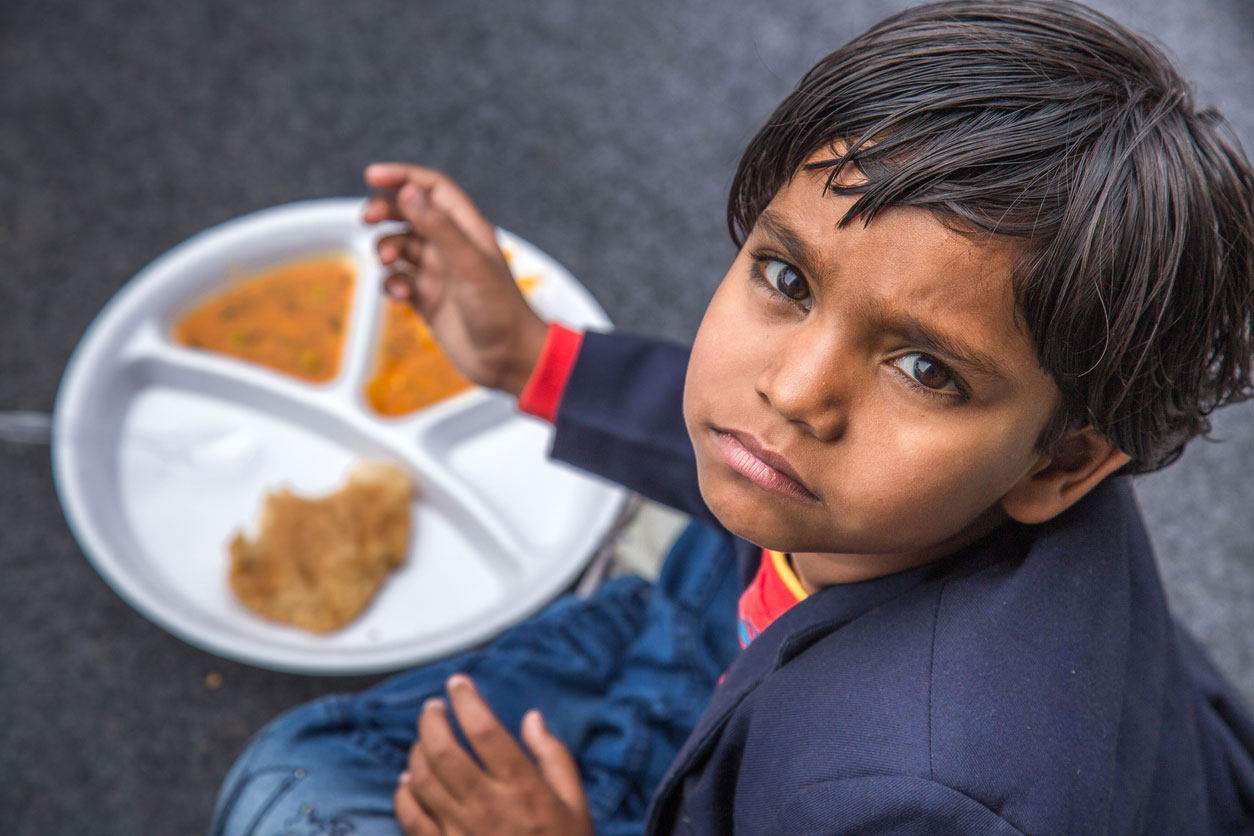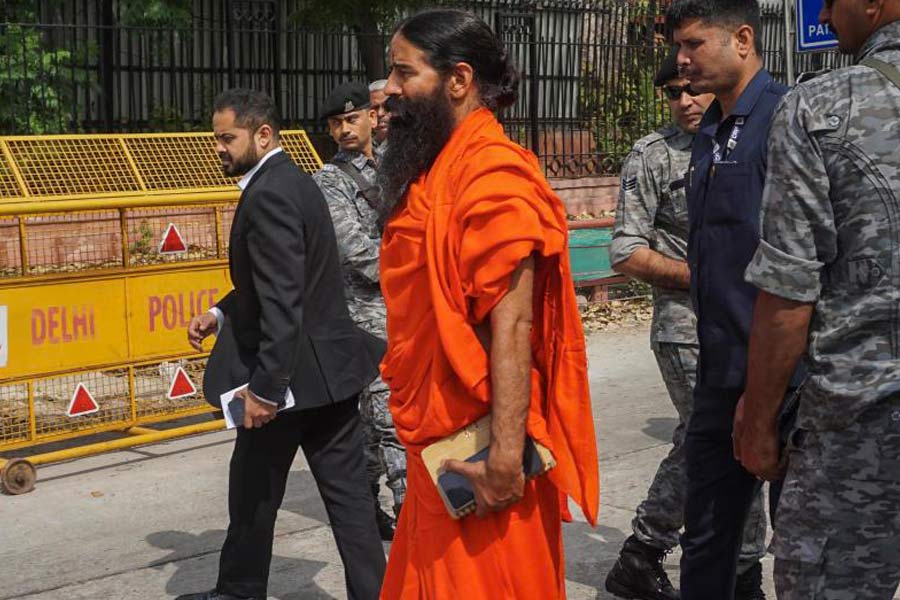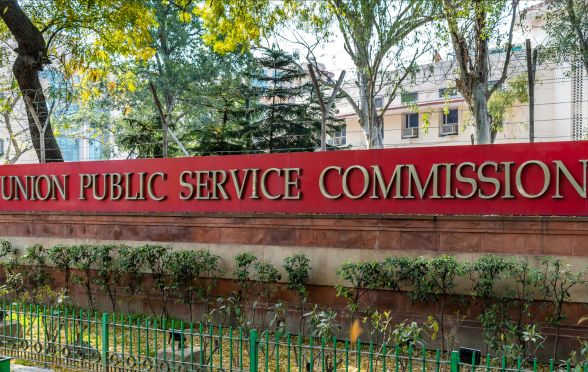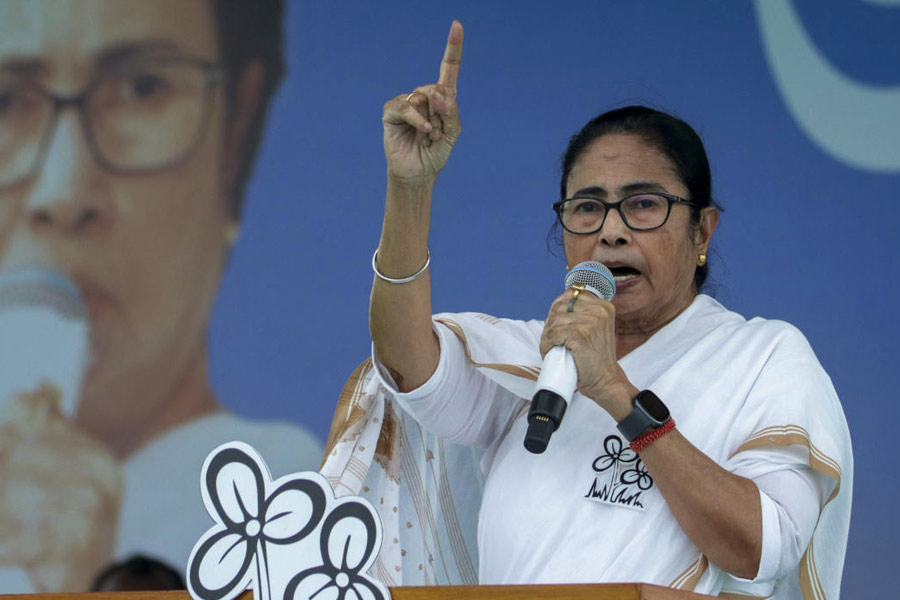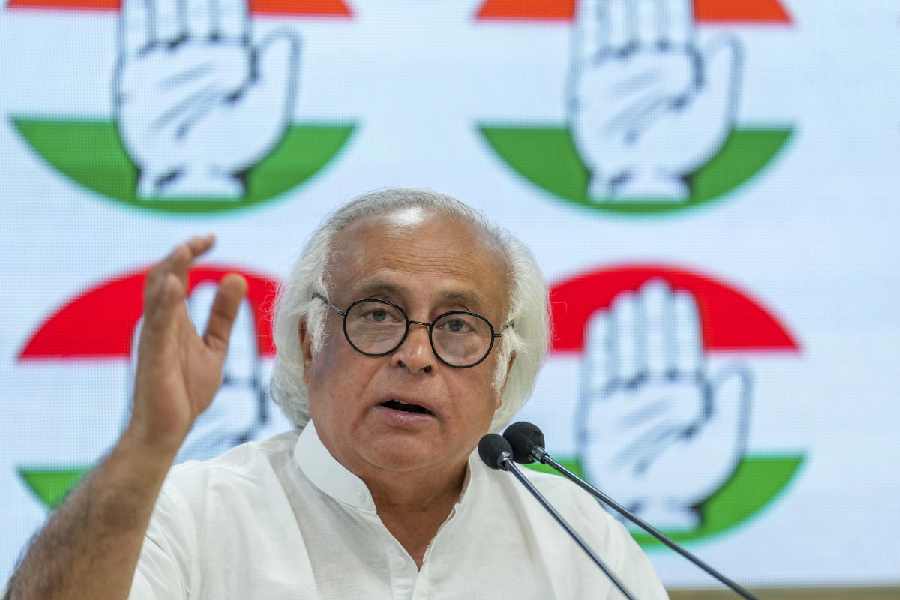The Centre has allowed privately managed centralised kitchens to be engaged to serve food to schoolchildren in rural areas under its midday meal scheme — a decision it had earlier announced in May 2017 only to roll back in April this year — raising fears of loss of jobs for thousands of cooks.
Trade unions, including the Rashtriya Swayamsevak Sangh-affiliated Bharatiya Mazdoor Sangh (BMS), described as “unjustified” the decision of the human resource development ministry, announced in guidelines issued last week, and said it would add to the current job crisis.
More than 25 lakh cooks-cum-helpers are employed in schools. The central government gives an honorarium of Rs 1,000 a month to each cook-cum-helper while most states add varying amounts from their own budget.
Economist Reetika Khera said kitchens in schools allow better scrutiny of the meals, by parents and teachers, than a centralised kitchen would. Outsourcing the meals to private agencies would also increase costs, she said.
A centralised kitchen is where food is cooked in large quantities and transported to the schools. In cities, centralised kitchens have been allowed for some time because schools often do not have the space for a kitchen and face difficulty in hiring cook-cum-helpers. In rural areas, each school has its own kitchen.
“Every school shall have the facility of cooking meal in hygienic manner and schools in urban areas and identified rural areas which have good road connectivity and viable cluster of schools, for purpose of leveraging efficiency gains, may use the facility of centralised kitchens for cooking meals wherever required in accordance with the guidelines issued by the central government and the meal shall be served to children in respective schools only,” the latest guidelines say.
However, the final decision to outsource to NGOs is with the state governments.
Khera, an economics faculty member at IIM Ahmedabad who has studied entitlement programmes such as the public distribution system and the midday meals scheme, raised the issue of costs as well as that of food getting spoilt.
“The density of schools is lower (in rural areas), so there will be additional transport costs. There’s a danger of food getting spoilt especially in the summer during transport. If refrigerated vans are used, that will escalate costs,” she said.
“The midday meal scheme employs over two million women as cooks-cum-helpers. These local jobs will be taken away, to other areas. If kitchens are large and automated, not enough jobs may be created,” she said.
Khera also feared that the existing infrastructure in schools, such as utensils, LPG, kitchen shed, would be wasted.
BMS general secretary Virjesh Upadhaya agreed with the concern of job loss.
“There is no justification for engaging centralised kitchens in rural areas. The country needs labour intensive approach to increase jobs. Handing over midday meals scheme to private agencies in rural areas is a capital-intensive approach. Many cooks who are already working will lose their jobs. We are against it,” Upadhaya said.
The Centre of Indian Trade Unions (CITU) general secretary Tapan Sen claimed the government had taken the decision under pressure from the private lobby.
Across the country, there are nearly 70 NGOs engaged in preparation of the meals in 137 district headquarters of 13 states, including Bengal, Odisha, Bihar, Jharkhand, Assam, Uttar Pradesh and Delhi. Most of them serve vegetarian food. Akshaya Patra, which too serves vegetarian food, is the leading NGO to provide meals to 18 lakh students out of the total 70 lakh served from centralised kitchens.
Nearly 10 crore children have the midday meal in 11 lakh schools every working day. Multiple studies have found that the scheme has helped to address classroom hunger and increased attendance. Higher rates of attendance have been recorded in schools that include non-vegetarian dishes.
Sen criticised the practice of serving vegetarian food by NGOs like Akshaya Patra.
“From BJP factory, only vegetarian food will come. Under pressure from private organisations, the government has taken this decision to help make profit. The private sector is looking for government schemes to make profit by utilising the government fund,” Sen said.
Seven states are providing non-vegetarian items, preferably egg, out of their own resources. States like Gujarat, Madhya Pradesh and Rajasthan do not provide eggs or any other non-vegetarian food. The central guidelines are neutral on serving of non-vegetarian food and only prescribe the required calorific and protein value from meal for primary and upper primary levels.
An email sent to the HRD ministry on Wednesday to ask why private centralised kitchens were needed in rural areas did not elicit a response.
Akshaya Patra, an NGO that has been publicly criticised by some, said in response to an email from this paper: “As an implementing agency of the Government’s flagship Mid-Day Meal (MDM) Scheme, we have been providing freshly cooked mid-day meals to children in adherence to the directions of the Central and State Governments. Akshaya Patra strives to follow the guidelines laid down by the Government in its endeavour to feed children a wholesome meal as an incentive to attend school.”

